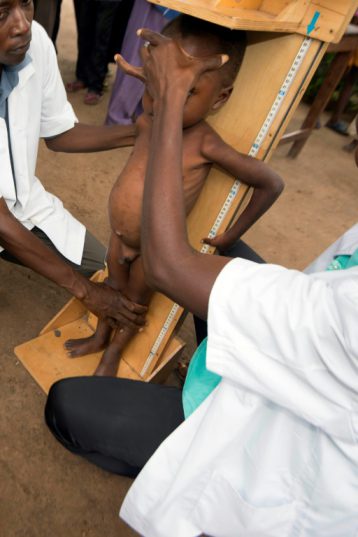Elroy Gelant shatters 31-year-old South African marathon record
The UN's high commissioner for refugees, Filippo Grandi, on Wednesday launched a key visit to the Democratic Republic of Congo (DRC) ahead of efforts to drum up nearly $1.7 billion (1.38 billion euros) in aid for the troubled country.
Grandi will meet with senior officials, aid workers and refugees before heading to several locations in the east of the country to assess the situation first-hand, his office said.
The visit comes against a backdrop of tension between the DRC authorities and agencies over the scale of humanitarian problems in the sprawling, violence-torn country.
In January, the International Organization for Migration (IOM) said the crisis had reached a “breaking point” and identified needs of $1.68 billion.
Donor countries will meet in Geneva on April 13 with the goal of raising the sum.
But the Kinshasa government has refused to take part, saying the crisis is being exaggerated.
On March 23, Prime Minister Jose Makila said aid bodies and NGOs were propagating a “bad image of the Democratic Republic of Congo throughout the world”.
At least 13.1 million Congolese are in need of humanitarian aid, including 7.7 million who are severely food insecure, the UN Security Council said in March.
Among these, 4.5 million are people who have had to flee their homes because of conflict, according to UN estimates as of December 31 last year.
In contrast, the DRC’s minister of humanitarian affairs, Bernard Biango, has put the number of internally-displaced people at 231,241.
On Tuesday, Foreign Minister Leonard She Okitundu said the country, “despite our budgetary difficulties,” would spend $100 million “to ease humanitarian distress.”
It would earmark $10 million to help Congolese refugees, or those who have been internally displaced, to return home, he said.
“We do not have a closed mind with regard to all the contributions that may come from our partners in the framework of international solidarity,” he added.

A child is measured at a health centre for starving children in the city of Kananga. The central region of Kasai exploded into violence in 2016 — a humanitarian crisis there is now escalating fast, say aid specialists
The humanitarian crisis in eastern DRC has deep roots, dating from years of violence between rival ethnic groups and militias.
But it has also escalated in the diamond-rich central region of Kasai, which exploded into violence in 2016 after soldiers killed a local traditional leader known as the Kamwina Nsapu.
Fighting between security forces and Kamwina Nsapu loyalists has since killed more than 3,000 people and displaced 1.4 million, according to the Roman Catholic church. Successive harvests have been destroyed.
In 2017, the UN’s Office for the Coordination of Humanitarian Affairs (OCHA) requested $812.5 million for humanitarian aid in the DRC, but received only $427.8 million — a shortfall of 47 percent.
Download our app